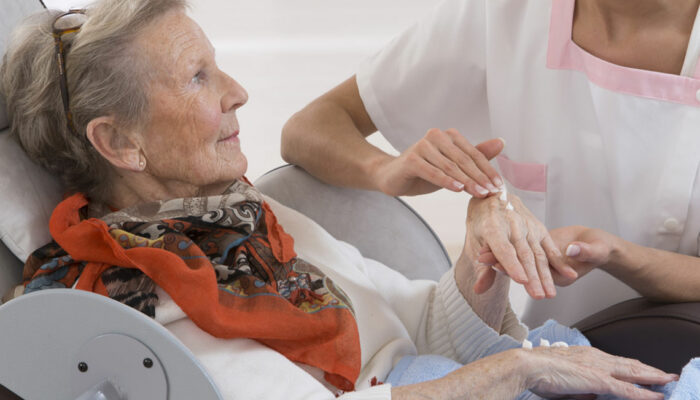Three Tips for Choosing SMA Caregivers
While choosing a caregiver for spinal muscular atrophy (SMA) patients, it is important to decide whether the primary caregivers will be family members or professional caregivers. It can be tough to live with a neuromuscular disease, and there are few day-to-day activities with which an SMA patient will need help.

Hence, choosing a primary caregiver for an SMA patient is an important decision, and one needs to choose carefully. Below are three tips for choosing caregivers for SMA patients.
- Explore all the options
When a family learns that a member who suffers from SMA requires a caregiver, the first thing they need to do is access their financial situation. After going through the painful process of diagnosis, the financial condition is the first thing that a family should plan and discuss. Families whose overall income falls below a certain level, qualify for complete coverage of an in-home caregiver for the SMA patient through Medicaid. Usually, families whose income are easily above this income bracket can typically afford a caregiver’s expenses from their own pockets. The problem usually starts for households in between who don’t fall below the income bracket but who still don’t make enough money to support the expenses. For example, in a family where both the parents are working, and the child has spinal muscular atrophy, the parent knows that they need one person around their child at all times. In situations like this, the parents evaluate the cost of hiring a full-time caregiver and compare it to how much income they would forfeit if one of them plans to leave their workplace to take care of the child or if only one paycheck income allows them to access state or federal benefits. Also, some of the other factors that influence the decision are the state in which the family is residing. Some states like Tennessee and California subsidize the cost of an in-home caregiver who meets specific criteria.
- Make the right choice
Once all the financial parameters are clear and well-established, the next step is selecting a caregiver. In the early days after diagnosis, most SMA patients want a family member as their caregiver. It is a natural decision to make after the anxious days a person goes through during the diagnosis. Also, most parents are willing to be the primary caregivers of their children, and many spouses want to take care of their partners as well. Family members make outstanding caregivers for SMA patients, and they can join support groups and attend courses to learn all the skills that are required to take care of their loved ones. The needs include all the three- physical, equipment, and medication. Aside from the states where caregiver subsidies are available, usually, family caregivers for SMA are not paid. Also, when a family member is acting as one of the primary caregivers of an SMA patient, they need to realize that this is not a typical 40-hours per week type of job. The responsibilities in this job come all the time, and some family members, even if they love taking care of the person, can sometimes feel that it is taxing. Some of the essential duties of SMA caregivers include baths, meals, transferring the patient from one place to another, and repositioning them in the middle of the night. As the health condition progresses, the duty of the SMA caregiver shifts from doing the basics to handing the ventilator. The level of care needed at this stage is triple compared to the start.
- Hiring a professional
After some time, most families conclude that they have to look for caregiver assistance outside their home. Family members are undoubtedly extremely devoted caregivers, and it makes total sense for a parent to be the primary caregiver of their young child. However, as the condition develops, one may realize that they need professional help to manage the increasing responsibilities of taking care of the SMA patient. Also, in many cases, it is observed that the family members can develop a frustrating relationship because of the duties they have to bear as SMA caregivers. The role change from being a family member to a primary caregiver can be difficult, not only because of the added responsibilities but also because of the inability to lead a normal life.
The best option for selecting an SMA caregiver is finding the right balance by deciding on the help needed based on the stage and physical needs of the individual. For most families, a combination of both the family and paid caregivers works well. It helps in bringing a balance as the SMA patient has their family for emotional and mental support and paid caregivers for their physical and medical needs.
Disclaimer:
The content provided on our blog site traverses numerous categories, offering readers valuable and practical information. Readers can use the editorial team’s research and data to gain more insights into their topics of interest. However, they are requested not to treat the articles as conclusive. The website team cannot be held responsible for differences in data or inaccuracies found across other platforms. Please also note that the site might also miss out on various schemes and offers available that the readers may find more beneficial than the ones we cover.





